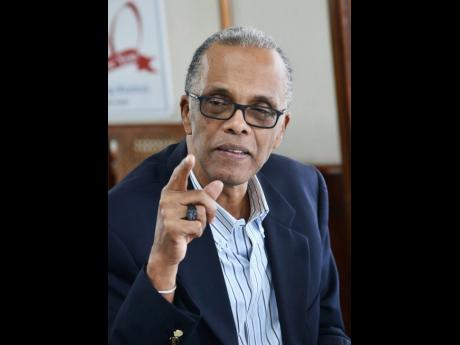Ramharrack deal an offer they couldn’t refuse – Ashley
The non-disclosure agreement (NDA) between Petrojam and its former unqualified human resources manager, Yolande Ramharrack, was not only expensive hush money, but has shut down all anti-corruption investigations where her testimony was paramount, says lawyer and public commentator Paul Ashley.
In an interview with The Gleaner yesterday, he said all investigative arms of the State were constrained by a non-disclosure agreement signed with Ramharrack, who negotiated a $9.2 million severance package with Petrojam.
“Ms Ramharrack is clean as a whistle. She cannot talk, because she will not talk. And she has been paid handsomely not to talk. The non-disclosure agreement was the best thing for the Government and the human resources manager,” Ashley asserted. “I am willing to bet that the non-disclosure agreement was an offer the Government could not refuse.”
It emerged that Ramharrack, through her lawyers, wrote to the management of Petrojam asking for two years’ salary totalling $26 million, and benefits to which she claimed she was entitled, as well as incentives. Ramharrack was also facing disciplinary action at the scandal-tainted oil refinery.
Ashley believes that the political risk of full disclosure was extremely high and would be further embarrassment for the Government. He believes that the Petrojam scandal was the “mother and father of all political scandals, corruption, nepotism, and cronyism in Jamaica”.
“It was a scandal of enormous proportions, and remember, it runs across administrations and implicates both regimes, so it was wider and deeper,” he argued.
Ashley’s view was not shared by Private Sector Organisation of Jamaica (PSOJ) President Howard Mitchell, an attorney-at-law.
“A statutory body is a legal persona like any other body. The fact that it is owned by the Government does not mean that it cannot enter into ordinary legal relationships. The standard confidentiality clause is binding against all comers, except, by force of law, you are compelled to reveal the information.
The Parliament of the country is sovereign. It is the highest court, and it can, by force of law, break the confidentiality clause. So the question of not releasing the information to the Parliament is entirely ridiculous,” he told The Gleaner yesterday.
Mitchell said it was the same as if the courts had issued an order and it was refused.
But Parliament, he said, had a responsibility to exercise discretion in how it revealed the information.
“My position is that it’s not the prime minister who negotiated the NDA, but the board of Petrojam. It is the board, and it must be heard from, not necessarily about the content of the agreement, but what was the overriding justification for putting a confidentiality clause of non-disclosure of this nature in this agreement, with this person?” Mitchell questioned, noting that confidentiality could not be maintained against a lawful request from the court or from an authority such as MOCA.
erica.virtue@gleanerjm.com

